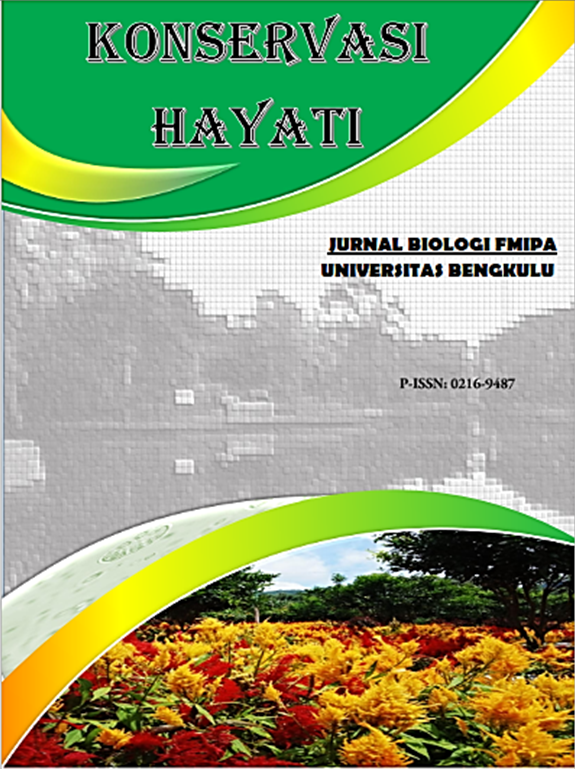Main Article Content
Abstract
Cows are one of the ruminant animals which have high economic value because they have various needs for human life. In Bengkulu many cattle farms are found, but this is not free from parasitic infections which have special disadvantages on very large cattle. The purpose of this study was to identification the types of parasites found in cow feces in the village of Lempuing Bengkulu. The research was conducted on 2 July-2 August 2018 at the UPTD Laboratory and Bengkulu Animal Health Clinic using three methods: the native method, the sedimentation method and the mammalian faecal sedimentation method with 3 faecal samples. In the native
method no parasites were found containing worm eggs. In the method of sedimentation of cow feces (Bos sp.) obtained positive results of parasites containing worm eggs of Ascaris sp., Schistosoma sp. and Oesophagostomum sp. In the mammalian faecal sedimentation method, the presence of parasitic worm eggs Fasciola sp. and Paramphistomum sp.
Keywords
Article Details
Authors who publish in this journal agree with the following terms:
- Authors retain copyright and grant the journal right of first publication with the work simultaneously licensed under a Creative Commons Attribution-ShareAlike 4.0 International License that allows others to share the work with an acknowledgement of the work's authorship and initial publication in this journal.
- Authors are able to enter into separate, additional contractual arrangements for the non-exclusive distribution of the journal's published version of the work (e.g., post it to an institutional repository or publish it in a book), with an acknowledgement of its initial publication in this journal.
- Authors are permitted and encouraged to post their work online (e.g., in institutional repositories or on their website) prior to and during the submission process, as it can lead to productive exchanges, as well as earlier and greater citation of published work (See The Effect of Open Access).
- This work is licensed under a Creative Commons Attribution-ShareAlike 4.0 International License.
References
- Akoso, B., T. 1996.Kesehatan Sapi. Yogyakarta. Kanisius.
- Anonimous. 2005. A Review :Alternative methods of controlling ruminant internal parasites.School of Biology Sciences. University of Aberden. Edisi:25.
- Balai Venteriner, 2017. Parasitologi Lampung: Dinas Perternakan dan Kesehatan Hewan.
- Darmadja, S, D, N, D 1980. Setengah Abad Perternakan Sapi Tradisional dalam Ekosistem Pertanian di Bali. Disertasi Universitas Padjajaran, Bandung.
- Kurt. 1999. Prinsip-prinsip Ilmu Penyakit Dalam Volume. Penerbit Buku Kedokteran EGC: Jakarta.
- Rasyaf. 2005. Memasarkan Hasil Peternakan. Cetakan II. Jakarta: Penebar Swadaya.
References
Akoso, B., T. 1996.Kesehatan Sapi. Yogyakarta. Kanisius.
Anonimous. 2005. A Review :Alternative methods of controlling ruminant internal parasites.School of Biology Sciences. University of Aberden. Edisi:25.
Balai Venteriner, 2017. Parasitologi Lampung: Dinas Perternakan dan Kesehatan Hewan.
Darmadja, S, D, N, D 1980. Setengah Abad Perternakan Sapi Tradisional dalam Ekosistem Pertanian di Bali. Disertasi Universitas Padjajaran, Bandung.
Kurt. 1999. Prinsip-prinsip Ilmu Penyakit Dalam Volume. Penerbit Buku Kedokteran EGC: Jakarta.
Rasyaf. 2005. Memasarkan Hasil Peternakan. Cetakan II. Jakarta: Penebar Swadaya.
